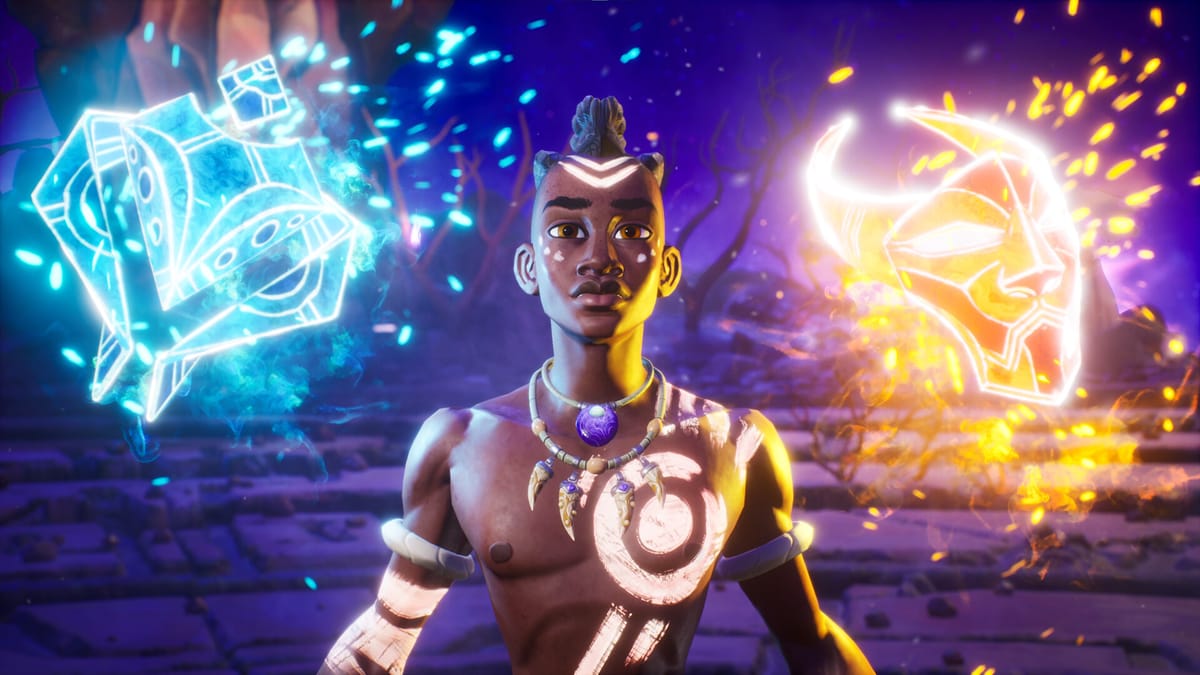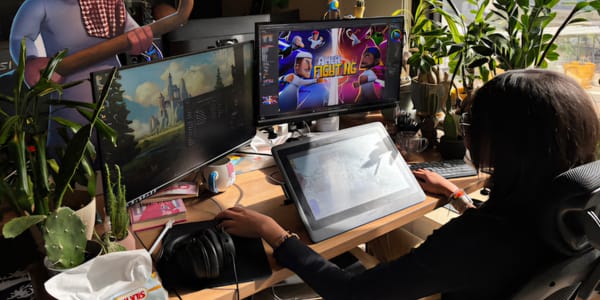Can a single hit game transform the African games industry?
The idea of a one-hit wonder is tempting, but is it a solution?

Africa's video game industry has experienced notable growth in recent years. However, despite this progress, a large portion of the market remains untapped compared to more established gaming hubs like Europe, North America, and Asia.
I've spoken with several game developers and studio founders across the continent who believe that Africa needs a breakout hit game to attract global attention and investment.
This idea is similar to how CD Projekt Red’s The Witcher series helped elevate Poland onto the international game development stage while fostering a community of aspiring developers.
Yet, while the potential impact of a single hit game could be significant for Africa, relying exclusively on this strategy comes with its own set of risks.
A single hit game could make a difference
First, it’s important to note that the concept of a ‘breakthrough’ game in Africa is not without precedent. Poland’s rise as a gaming hub, for example, is often attributed to the success of The Witcher series. The game’s critical and commercial success attracted international investors and helped create a favourable environment for local developers, who gained recognition and funding as a result.
African developers, like FitNot Games founder Abdullah Elshabrawy and Dash Studios CEO John Ikpeme, believe a similar path could be possible for Africa. They argue that a single hit game or game series could serve as a beacon for investors and attract media attention.
According to Ikpeme, “The only thing standing between Africa's gaming ecosystem and rapid growth is one hit game. Just one, any one.” Similarly, Elshabrawy believes, “As an industry, we need a success story—a studio that achieves a major hit and captures widespread attention.”
Both perspectives suggest that such a game could break down the barriers preventing African studios from gaining wider visibility, potentially catalysing industry-wide development. That all sounds promising, but let’s now explore the potential risks.
What hangs in the balance?
For an industry as diverse as Africa’s, relying on a single title or studio to create a hit game may set unrealistic expectations. First, an undue focus on one successful game could stifle the broader diversity of titles in development across the continent.
What I mean is, if a single African game becomes overly celebrated or promoted as the "success story" of the continent, the industry might become too fixated on replicating that formula. Developers could feel pressured to follow a similar path, which may limit creativity and experimentation in game design.
Secondly, the issue of perception. The concern here is that, in global media and entertainment industries, the success or failure of one high-profile project can sometimes be viewed as representative of an entire region or industry. So for instance, if a highly anticipated game from Africa fails commercially or critically, people outside the continent (and often within) might unfairly generalise and think that all games from Africa are likely to fail or that the industry itself lacks the capacity to produce successful titles.
Should this game fail to meet expectations, investors may also perceive the entire industry as a high-risk venture, even though smaller, less visible projects are thriving.
Then there’s the ‘platform of choice’ issue
Africa is a mobile-first continent, with mobile phones serving as the primary access point for playing games. This makes mobile a logical choice for reaching a broad audience. However, developers should not overlook the considerable player base interested in console and PC gaming.
The success of The Witcher franchise, for example, can be attributed in part to its availability on powerful platforms like PC and console, which enabled high-quality graphics and expansive open worlds—features that are difficult to replicate on mobile devices, despite the powerful hardware available today.
An African hit game that is exclusively available on mobile could capture a large domestic audience, but it may struggle to gain international attention in the same way as a AAA console or PC title. This highlights the need for a strategic balancing act between what African developers can realistically create and what can attract global interest.
But Isa, say the game is available on mobile, PC and console, what about people who don’t like paying for games?
I'm glad you asked. Monetization is a significant challenge in Africa, if not the biggest, especially in a continent where disposable income is limited and paying for games is not widespread. Developers must therefore carefully consider the economic model for a potential hit game. Free-to-play models, which rely on ads or microtransactions, are often the norm, but these may struggle to sustain high-quality production or storytelling depth, which are essential in creating a global hit.
Although platforms like Carry1st are making strides to simplify payment systems in Africa, a premium game that requires an upfront purchase would still face challenges. Alternatively, developers could adopt a hybrid model, offering a free base version with optional paid content to reach a wider audience while still generating revenue. However, this approach requires careful balance to avoid alienating players or creating a "pay-to-win" perception.
Before I move on, let’s not forget connectivity, which is a critical issue in Africa as many regions have limited or costly internet access, making online gaming less feasible. A hit game that relies on multiplayer features or live updates may not resonate with audiences who prefer offline play. For African game developers, another challenge will be finding a way to balance accessibility with engaging, high-quality gameplay.
One hit game Is a start, not a solution
The idea of a one-hit wonder for Africa’s video games industry is tempting, but it’s not a guaranteed solution. While a single successful game could attract attention, funding, and talent, providing a much-needed breakthrough for African developers, building a sustainable industry requires more than just one hit. It needs a diverse range of games and studios, supportive policies, and strong local and international collaborations.
A high-quality game with global appeal could certainly open doors, but for long-term growth, I think that the African games industry must nurture an ecosystem that fosters multiple success stories.





